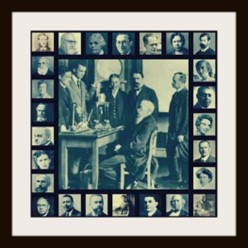
The course will answer the most basic question, Why study the history of psychology? Because it is psychology, all of it, and psychology cannot be studied seriously apart from its history. The importance of the history of psychology is seen every day in contemporary research. Every journal article which describes new results necessarily begins with the immediate history of the problem. And it is only that context of history, of what has led up to that particular research, that can give significance and meaning to the new findings. Its meaning and significance within psychology depends upon its relation to the larger ongoing history of which it is a part. The history of a science transcends the science itself. The history of a science as a kind of meta-science is rarely seen by the individual scientist who is confined to his own specialty, for the very historical contexts that bestow significance on any discovery or specialty reach back in time to prior contexts, which in turn have been generated by still prior causation. The purpose of history is to discover and understand this historical structure which lies at the very foundation of the logical surface of science and to which all present discovery is relative.
Current psychology is inseparable from its history with much greater degree than any other science. As a laboratory investigation, psychology is only a century old but as a body of insights, observations, and hypothesis, it is the oldest science in the world. Moreover, its history is a continuing discussion of the perennial and enduring problems of human and animal nature. It attempts to answer the same questions again and again, even by the same routes. Current work is the most recent voice in discussions which have been reproduced time and again throughout history. Thus, studying the history of psychology is relevant to present research and this is a fact which is not true of most of other sciences.
The course will help students to discover the historical structure under the logical surface of the science of psychology, to understand the present approaches and fads and their relevance to real questions, to comprehend psychology as a whole. Studying history is the only way to fully understand a field of such divergence and conflicting emphases as psychology, which is at the same time one of the central sciences of our era.
This course will provide an overview of the history of psychology from the mid-1800s to the present, with the earlier philosophical and practical underpinnings of psychological questions. The course will consider the history of the discipline with the goal of exploring how psychological thinking and methodology develop and students will be encouraged to consider issues of reflexivity and subjectivity as they pertain to the development of psychology and its research practices. In addition to learning about the major schools of psychology (e. g., Behaviorism, Psychoanalysis, Gestalt-psychology, etc.), the course will explore how cultural forces shape psychological theories and the experiences of the individual psychologists who develop them.
- Teacher: Людмила Андреева